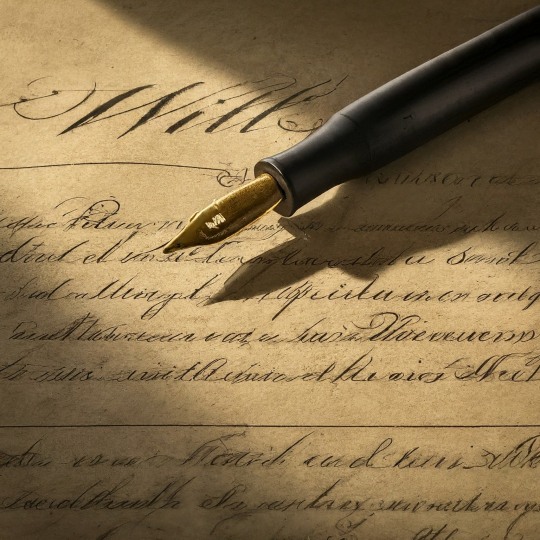#WillsAct
Explore tagged Tumblr posts
Text
WILLS PART 1

WHAT IS A WILL?
A will is a testamentary disposition of one's property, voluntarily made by the testator, signed by the testator by himself or the testator appointing someone to sign on his behalf in the presence of at least two witnesses and it becomes operative upon the death of the testator. A male who writes his Will is known as a TESTATOR while a female is known as a TESTATRIX.
The state of having made a valid Will before one dies is known as TESTATE, while the state of not having a valid will before death is known as INTESTATE.
TYPES OF WILLS
The following are the types of Wills
Statutory Will: These are wills made in accordance with the provisions of the Wills Act 1837 or the relevant Wills law of the testator’s state. The features of a statutory will are:
It must be in writing pursuant to section 9 Wills Act 1837. Any form of language will suffice. It can be holographic in nature(handwritten) or typed.
It must be attested by at least 2 witnesses in the presence of the testator
It must be duly executed by the testator in the presence of at least two witnesses.
The testator must have testamentary capacity and intention
The testator is of statutory age.
Nuncupative Will: Oral Will made according to customary law by a person in anticipation of imminent death as to the disposition of his property.There are conditions to be fulfilled before there can be a valid nuncupative will:
The directives must be made in presence of at least two witnesses.
It has to be made voluntarily.
The testator must have testamentary intention and sound mind.
The beneficiaries must be specifically named and described so as to be ascertainable and identifiable
The gifts (properties) must be specifically named and described so as to be ascertainable and identifiable
Privileged Will: This is a departure from the essentials of a valid will in the sense that such a will is said to be valid if it is attested to by just one officer. All they require to be valid is that they must be made by those who are entitled to make privileged Wills and they must be in writing and attested to by at least one person. The persons who are entitled to make privileged Wills are:
a) A mariner or seaman being at sea. See section 6 Wills Law of Lagos; section 11 Wills Act.
b) A crew of a commercial at air. See section 6 Wills Law of Lagos; section 11 Wills Act
c) Military personnel in active military service However, under s. 276 Armed Forces Act, section 193 Air Force Act there are two conditions which a soldier making a privileged will must satisfy
i) The will must be in writing
ii)It must be signed by the military personal in the presence of a witness and the witness must attest to the signature in his presence.The will must be attested by an officer also in actual service or a government medical officer
Written Customary Wills: Where the written customary law will was not drafted by a solicitor, it must be proved to be genuine. To prove this validity, a party needs to show that the testator was an adult, knew what he was doing and its effect, and had made the will in the presence of one or more adult witnesses. A written will is usually a typed Will that has to be dated and signed in front of two witnesses. The two witnesses must also sign the Will. All three (you and your two witnesses) must be together when signing. The two witnesses cannot be beneficiaries under the Will. A written Will is governed by law and statutes.
IMPORTANCE OF A WILL
A testator's Will permits them to do the following:
Assign the assets to friends and family in accordance with his or her wishes.
Select dependable executors who will take the beneficiaries' interests into consideration.
Make burial and funeral plans in advance.
Assign guardians to minors.
Restrict or eliminate the use of family customs, rules, and traditions
Aid in removing or lessening hostility between family members
Capacity to make a Will
All adults are inevitably able to make a will. Nonetheless, it is crucial to note the following:
An infant unless in actual military service or a seaman cannot make a Will. (An infant is under 18 years of age)
A mentally disabled person cannot make a valid Will whilst this disability subsists.
A blind person can make a Will, but it has to be shown that the Will was read to him and he appeared to perfectly understand the contents before he attested to it. An attestation clause will usually suffice for this type of person.
An illiterate can make a Will, but it must be shown that the contents were read over to him and that he appeared perfectly to understand and approve of same. An attestation clause similar to the blind person above will be useful for this type of individual.
#WillsAndTestaments#EstatePlanning#LegalAdvice#InheritanceRights#FamilyLegacy#LegalKnowledge#Guardianship#TestamentaryCapacity#EstateAdministration#WillsAct#NigerianLaw#Law#AALawsNG#AvielAvenanteLawPractice
0 notes